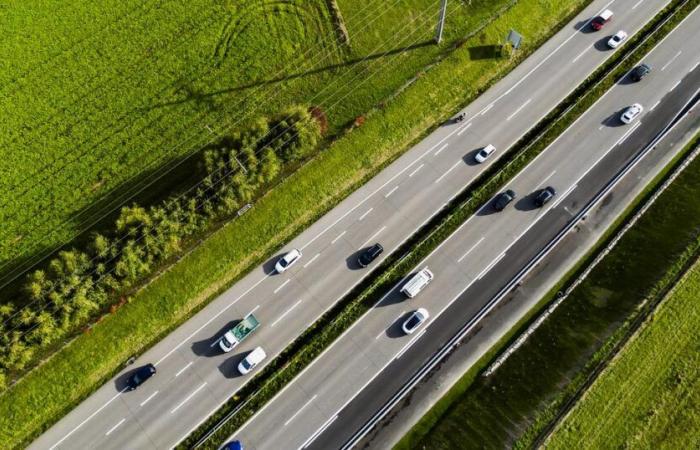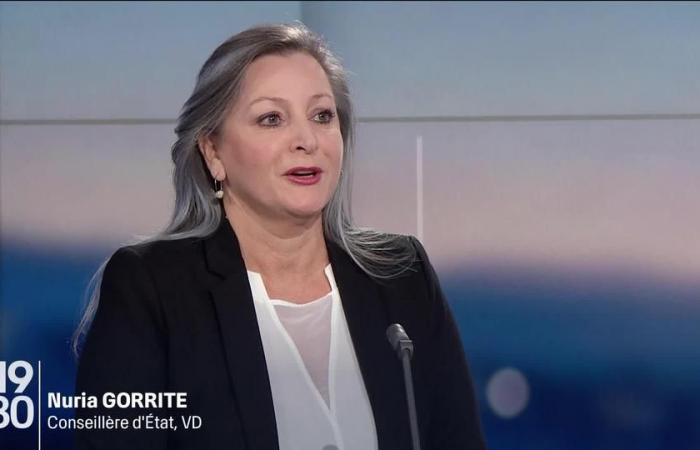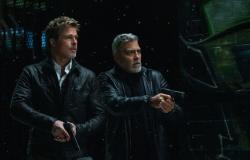The popular rejection of the six motorway widening projects on Sunday leaves billions unused in the Forta fund. The parties clash over their reallocation, but for Nuria Gorrite, “we must first listen to the aspirations of the population” to be able to propose the most appropriate solutions, she declared on 7:30 p.m.
If the opponents of the six highway extension projects did not hesitate to let their joy explode this Sunday, the time was for introspection in the other camp.
The population’s refusal to widen the highways, a project estimated at 5 billion francs, leaves Forta (see box) with unused funds and opens the way for further discussions. At the end of last year, this fund had 3.67 billion francs and is therefore expected to increase further.
Political Switzerland has no shortage of ideas. The political parties, already in disagreement, oscillate between increased investments in road infrastructure, a reorientation towards more ecological objectives, or even towards reimbursement to those who contributed to this fund, i.e. motorists.
>> The debate between Delphine Klopfenstein-Broggini and Nicolas Kolly in Forum:
“Lack of consultation”
For Vaud State Councilor in charge of transport Nuria Gorrite, it is above all time to ask questions about the reasons for this refusal, as she explains on the 7:30 p.m. microphone. “There are ways to redistribute this money, but we must first listen to the aspirations of our populations. What emerges from this refusal is a lack of consultation. This project is perceived as imposed from above, without real dialogue.”
She welcomes the fact that there are two funds in Switzerland – one for rail and the other for national roads, as well as urban traffic -, created to “ease the conflicts between these two modes of transport”. But expectations have evolved since their implementation around ten years ago. “Today, drawing lines on a map without consultation and without checking that it meets the real needs of the population no longer works,” she insists.
Use emergency lanes
According to her, widening existing motorways, such as in Morges, with the emergency lane, could prove to be a good compromise. “The rejected project did not provide immediate solutions, and people are waiting for concrete answers to their mobility needs. The occasional widening or the use of the emergency lane in the event of overload are intelligent projects which deserve reflection.”
Before concluding: “I propose to think about a new alliance, a pact around mobility and accessibility. We must concentrate our efforts on the most problematic points, in particular at the entrances and exits of large cities, where congestion are the most critical.
>> The full interview with Nuria Gorrite in the 7:30 p.m.:
Radio topics: Etienne Kocher/Coraline Pauchard/Valentin Emery
TV subject: Thierry Clémence/Philippe Revaz
Web adaptation: Fabien Grenon
Swiss







